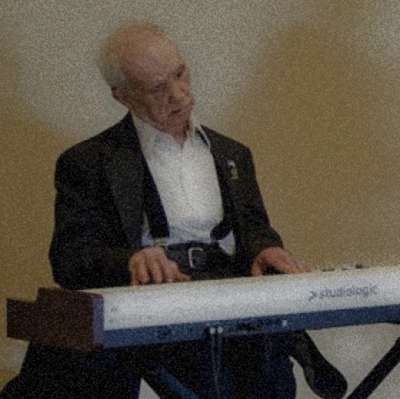Zach Ferguson, a junior at Battleground High School in Battleground, WA, was the winner of the 2007 Accent on Youth Essay Contest. His passion for jazz and the challenges he faces as
a youthful fan of it is the focus of the column.
This column was originally published on September 6, 2007
*
Listen to Dinah Washington sing Accent on Youth
__________
The Versatility of Music
__________________________________________
Plato once said, “Music is moral law. It gives soul to the universe, wings to the mind, flight to the imagination, and charm and gaiety to life and to everything.” By stating this, Plato struck a common chord, so to speak.
In contemporary society, the benevolent effects of music are readily apparent. Music can act as an antidepressant, repairing your spirits in times of woe. It possesses the unexplainable ability to unite seemingly opposite people, transcending cultural, racial and socioeconomic divisions, appealing to our most complex emotions. In recently conducted studies, music has even proven to facilitate the education of mentally retarded children. Evidently, music’s potential applicability is mind-boggling. Though seeming innocent, music can even become a force for change.
It is common knowledge that the blues arose from the squalid conditions and bigoted mandates African-Americans were subjected to during our country’s evolution. In this instance, music would make uninterrupted slave labor somewhat endurable, and the concept of perpetual serfdom, for the moment, tolerable. This folk music also was employed to clandestinely share information as to how slaves might emancipate themselves; Exemplified by “The Drinking Gourd” slaves would learn, repeat and then teach others a song which covertly instructed them to follow the North Star to a location where they eventually would be escorted to the free north by Peg Leg Joe.
In the early 20th century, Abel Meeropol, a Jewish schoolteacher who practiced in the Bronx, penned the infamous “Strange Fruit ,” a song that was later espoused by Billie Holiday and performed regularly. It is a macabre, figurative depiction of lynching, a reprehensible spectacle prevalent in the pre-1970 Southern United States. This song shed a figurative light on the deplorable pandemic that was lynching, in a time when the government was reluctant to enact legislation to prohibit it. When the song was initially performed in 1938, a total of 12 people had been lynched that year. In the following years, fewer people were condemned to this horror. By 1965, lynching had practically disappeared.
The Civil Rights Movement was a turbulent period in American history, a period which exhibited unprecedented equalitarian progress. The contributions of jazz musicians were invaluable, with a particularly significant role played by Charles Mingus and his symbolic 1959 recording, “Fables of Faubus .” This song illustrated the 1957 integration of Little Rock Central High School, and the adamant opposition of Governor Orval Faubus to the 1954 Supreme Court decision. This decision, Brown v. Board of Education, mandated integration in American public schools. His song spread awareness of the injustices frequently committed in the South, even when the federal government had legislated against segregation.
Today, though, music seems to assume the environmental niche of mere entertainment. While truly symbolic, substantive songs are produced occasionally, the preponderance of contemporary musical art being trite and shallow (with the exception of the artists that contributed to Instant Karma, an album that has increased awareness regarding the Darfur Conflict). Modern music needs to embrace activist messages, which could potentially mitigate the effects of Global Warming, the exceedingly prevalent international disregard of human rights and the injurious consequences of voter apathy, lest we permit these regressive tendencies to persist.
Where are our Peg Leg Joe’s? Our contemporary Charles Mingus? Rather than producing music with the sole ambition of financial gain, I feel artists have a responsibility to incorporate altruistic messages in popular music. But we mustn’t postpone the composition of this priceless music, because these crises will inevitably escalate.
If not us, who? If not now, when?
______________________________
Zach Ferguson
*
Zach Ferguson, a junior at Battle Ground High School in Battle Ground, WA, was the winner of the 2007 Accent on Youth Essay Contest. His passion for jazz and the challenges he faces as a youthful fan of it is the focus of the column.
You can contact Zach at: [email protected]
To read Zach’s previous column, go to the next page








































